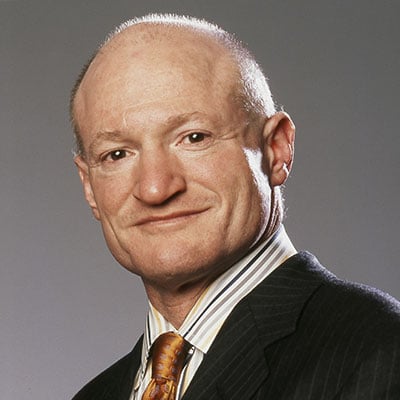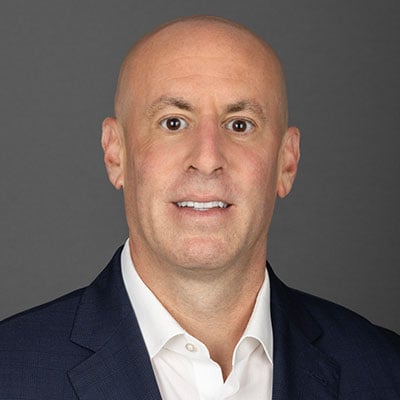LightSquared Wins Approval to Exit Marathon Ch. 11
LightSquared Inc. secured a judge’s approval Thursday for a bankruptcy reorganization that lets the wireless startup repay its debts, try to revive a failed nationwide network and retain an ownership stake for Philip Falcone’s hedge fund after three years of intense confrontations with creditors.
U.S. Bankruptcy Judge Shelley C. Chapman confirmed LightSquared’s restructuring proposal in a bench ruling hours after a pair of investment firms withdrew a Chapter 11 plan that, until now, had been the main competitor to the debtor’s strategy for ending a contentious and enormously costly odyssey through bankruptcy.
The debtor’s plan, which emerged after months of fervent closed-door negotiations, salvages a 44 percent equity stake for longtime sponsor Harbinger Capital Partners LLC while splitting up the remaining equity interests and board seats among Fortress Credit Opportunities Advisors LLC, Centerbridge Partners LP and JPMorgan Chase & Co.
Consensus among the major stakeholders came only after LightSquared came up with $1.5 billion in fresh financing last week to pay off Dish Network Corp. Charlie Ergen, its largest single creditor and, for most of the bankruptcy, its fiercest opponent.
“The debtors have carried their burden of proof with respect to the structure and valuation of the plan,” Judge Chapman said.
Never before had Ergen, who LightSquared has long suspected of trying to sabotage its business, been offered the full cash he had demanded. Previous version of the plan would have paid off his personal investment vehicle SP Special Opportunities LLC in new debt, which Ergen said would treat him unfairly. SPSO’s lawyers withdrew his objection on Tuesday after the cash-out mooted his plan objection.
Expelling Ergen from the reorganized LightSquared was a longstanding goal of the debtor, which worried about his potential influence as the head of a major wireless competitor. During a three-week trial before Judge Chapman, every objector except LightSquared’s former CEO Sanjiv Ahuja got behind the debtor.
Judge Chapman summarily rejected Ahuja’s claim that the plan rested on a lowballed valuation of the debtor.
A hugely promising startup backed by hedge fund magnate Philip Falcone, LightSquared sank into Chapter 11 in 2012 when the Federal Communications Commission rejected its proposed nationwide wireless network over concerns about interference with global positioning technologies.
Since then, seven restructuring proposals have fizzled, one rejected by Judge Chapman and six tentative agreements that never gained enough creditor support to advance as lawyers debated the ultimate value of LightSquared’s spectrum assets with a renewed licensing application still sitting before the FCC.
With no way to know how, or when, the agency will rule, the valuation question has been fraught with conflict. Overvaluing LightSquared could allow it to raise more new debt, which could become problematic in the future — even paving a path back into bankruptcy — if the assets don't prove lucrative enough.
Ergen is still not receiving a liability release under the revised plan, leaving him exposed to subsequent actions seeking to disgorge his cash-out. Last year, Judge Chapman ruled that SPSO’s claim could be partially wiped out due to Ergen’s stealthy acquisition of LightSquared’s debt on the secondary market, which he accomplished before anyone knew he controlled the fund.
Mired in mediation, LightSquared began inching toward a consensual exit from bankruptcy after the results of a government auction in November revealed huge market demand for spectrum, a relatively finite asset that seems to only increase in value. In the auction’s wake, stakeholders began competing to provide fresh capital and take on equity risk.
Solus Alternative Asset Management LP, a creditor and preferred stockholder, had floated a rival reorganization plan to take a controlling equity stake in exchange for providing $742 million in bankruptcy financing. The hedge fund dropped that plan after LightSquared found investors willing to buy out its preferred shares and debt holdings.
LightSquared is represented by Matthew S. Barr, Alan J. Stone, Michael L. Hirschfeld and Andrew M. Leblanc of Milbank Tweed Hadley & McCloy LLP. LightSquared’s special committee is represented by James H.M. Sprayregen, Paul M. Basta and Joshua A. Sussberg of Kirkland & Ellis LLP.
Ergen is represented by Rachel C. Strickland, Tariq Mundiya, James C. Dugan and Norman P. Ostrove of Willkie Farr & Gallagher LLP.
Solus is represented by Robert J. Stark, Jacob T. Beiswenger, Steven B. Levine, Sunni P. Beville, James W. Stoll, Jonathan D. Marshall and Brian T. Rice of Brown Rudnick LLP.
Cerberus is represented by Adam C. Harris of Schulte Roth & Zabel LLP.
The case is In re: LightSquared Inc., case number 1:12-bk-12080, in the U.S. Bankruptcy Court for the Southern District of New York.
REPRINTED WITH PERMISSION FROM THE MARCH 26, 2015 EDITION OF LAW360 © 2015 PORTFOLIO MEDIA INC. ALL RIGHTS RESERVED. FURTHER DUPLICATION WITHOUT PERMISSION IS PROHIBITED



